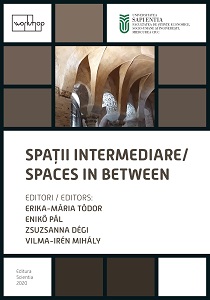“CHAMISSO WRITERS” OF HUNGARIAN ORIGIN. HYBRID IDENTITIES IN THE WORKS OF TERÉZIA MORA AND GYÖRGY DALOS
“CHAMISSO WRITERS” OF HUNGARIAN ORIGIN. HYBRID IDENTITIES IN THE WORKS OF TERÉZIA MORA AND GYÖRGY DALOS
Author(s): Roxana-Sînziana Rogobete
Subject(s): Hungarian Literature
Published by: Scientia Kiadó
Keywords: Adelbert-von-Chamisso Prize; cultural shift; hybrid identity; migration;
Summary/Abstract: The present study focuses on two writers of Hungarian origin who have been awarded the Adelbert-von-Chamisso Prize. Established in 1985, this literary prize honoured, until 2017, outstanding German-language authors from other cultural backgrounds, whose work was shaped by cultural shifts. The choice of authors therefore proves that linguistic and cultural dimensions in literature transcend borders. Writers such as György Dalos (awarded in 1995) and Terézia Mora (awarded in 2000 and 2010) are representative for the phenomenon of crossing and overlapping cultures, creating through their literature a space in-between. Identity formation – individual or collective – is a key aspect of their novels (Alle Tage from T. Mora, Die Beschneidung from G. Dalos), and our paper will argue which significant – spatial or, more important, mental – geographies are present in the two authors’ works. Refusing to be labelled under the peripheral or minority term, the novels show how universal the message of literature is.
Book: SPAŢII INTERMEDIARE / SPACES IN BETWEEN
- Page Range: 165-175
- Page Count: 11
- Publication Year: 2020
- Language: English
- Content File-PDF

